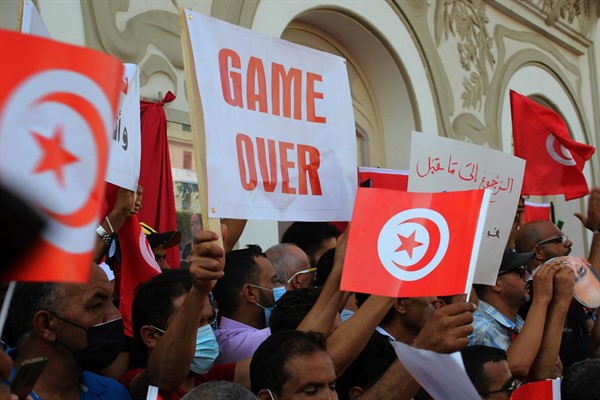Today, the Ukrainian people are fighting—quite literally—for their right to determine their own fate, independently and democratically. It was not so long ago that millions of people in multiple nations of the Middle East and North Africa rose up to fight for democracy at home in a wave of revolutions that, while markedly different from the events, circumstances and challenges in Ukraine, involved a quest to secure some of the rights that Ukrainians are today battling to preserve. At the time, these uprisings, known as the Arab Spring, inspired high expectations. Then, they derailed into tragedy.
Back in 2011, observers believed that the country in the region with the best chance for democratic success was Tunisia, where the Arab Spring first began. Now, a dozen years after the street vendor Mohamed Bouazizi set himself on fire, unleashing protests that transfixed the world and ousted autocrats in Libya, Egypt and at home in Tunisia, the fight to establish democracy in this bellwether Arab country has swerved badly off-track.
Over the past decade, as demands for democracy elsewhere in the region were crushed, Tunisia kept forging ahead. Then came the coronavirus pandemic. The health crisis intensified the problems and frustrations already facing the Tunisian people, including economic struggles, government inefficiency and corruption. It also created an opening for a new, would-be autocrat to seize power in a move that may mark the end of the country’s democratic experiment.

